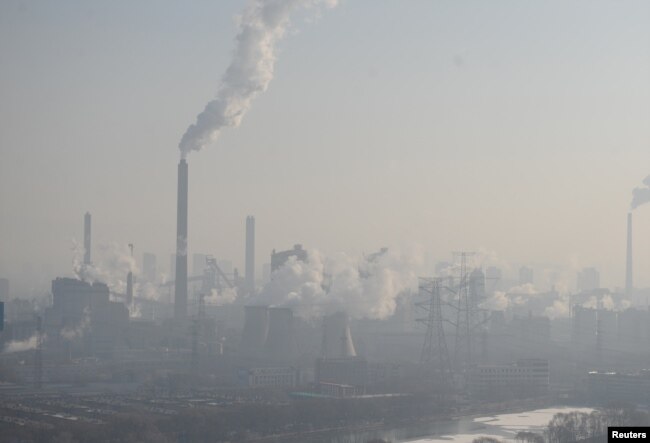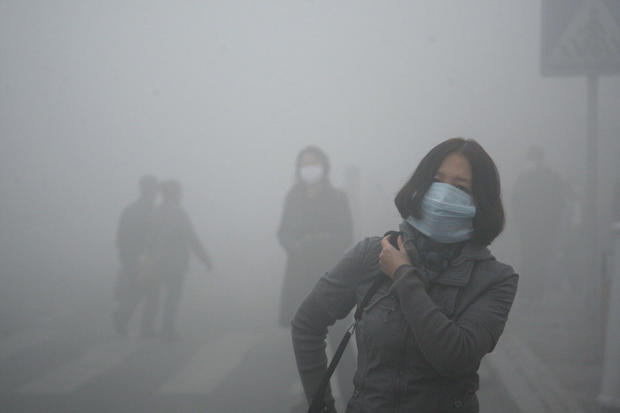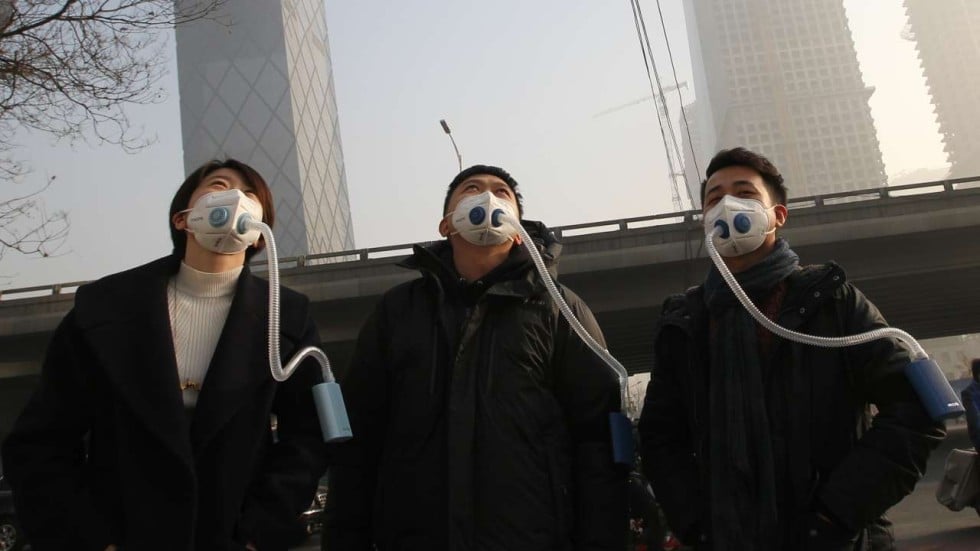
Climate change isn’t just bad for the planet’s health—it’s bad for people’s too. Effects will vary by age, gender, geography, and socioeconomic status—and so will remedies. A recent international study in the Lancet says that many more people will be exposed to extreme weather events over the next century than previously thought—“a potentially catastrophic risk to human health” that could undo 50 years of global health gains.
Solutions are in the works. In flood-prone Benin, national health insurance has been expanded to cover diseases likeliest to increase as the world warms and sea levels rise. In the steamy Philippines, programs are helping low-income residents manage weather-related risks with loans, hygiene education, and waste and water control. Meanwhile public health experts everywhere are calling for new measures to help people stay healthy despite floods, droughts, and heat waves. They are trying to convince governments to set up programs to provide water, food, shelter and medicine that automatically kick in when a natural disaster occurs
Solutions are in the works. In flood-prone Benin, national health insurance has been expanded to cover diseases likeliest to increase as the world warms and sea levels rise. In the steamy Philippines, programs are helping low-income residents manage weather-related risks with loans, hygiene education, and waste and water control. Meanwhile public health experts everywhere are calling for new measures to help people stay healthy despite floods, droughts, and heat waves. They are trying to convince governments to set up programs to provide water, food, shelter and medicine that automatically kick in when a natural disaster occurs
Global climate change can have a lot of negative consequences:
- Power outages in extreme weather could cripple hospitals and transportation systems when we need them most.
- Crop declines could lead to undernutrition, hunger, and higher food prices. More CO2 in the air could make staple crops like barley and soy less nutritious.
- Occupational hazards such as risk of heatstroke will rise, especially among farmers and construction workers. Labor could shift to dawn and dusk, times when more disease-carrying insects are out.
- Hotter days, more rain, and higher humidity will produce more ticks, which spread infectious diseases like Lyme disease. Ticks could be in much of the eastern U.S. by 2080.
- Trauma from floods, droughts, and heat waves can lead to mental health issues like anxiety, depression, and suicide.
More consequences:
- More heat can mean longer allergy seasons and more respiratory disease. More rain increases mold, fungi, and indoor air pollutants.
- Mosquito-borne dengue fever has increased 30-fold in the past 50 years. Three-quarters of those exposed so far live in the Asia-Pacific region.
- Senior citizens and poor children—especially those already afflicted with malaria, malnutrition, and diarrhea—tend to be most vulnerable to heat-related illnesses.
- Drought and chronic water shortages harm rural areas and 150 million city dwellers. If localities don’t adjust quickly, that number could be nearly a billion by 2050.
- Rising sea levels can threaten freshwater supplies for people living in low-lying areas. More severe storms can cause city sewage systems to overflow.




Aunt Jeannie ,
ReplyDeleteThis post should give people a wake up call , we are not only destroying Mother Earth we are included in the mix .
Do they people not understand that we are losing species each day , they should know we are human species we are just higher on the ladder , what affects them also affects us .
Maybe the climate has started to melt their brains , that happens when you do not use your brains .
I asked uncle Jon for his opinion , this is what he said :
Climate change is one of the greatest health threats facing humanity. As worldwide patterns of temperature, precipitation and weather events change, the delicate balance of climate and life is disrupted, with serious impacts on food and agriculture, water sources, and health.
Large-scale and global environmental hazards to human health include climate change, stratospheric ozone depletion, changes in ecosystems due to loss of biodiversity, changes in hydrological systems and the supplies of freshwater, land degradation, urbanization, and stresses on food-producing systems.
If people do not believe this post , I put some things down with links they can check out .
https://www.usatoday.com/story/news/health/2017/10/30/climate...\l "
Oct 30, 2017 · Climate change is already having an extraordinary impact on human health worldwide — affecting the spread of infectious diseases, exposing millions to air pollution and heat waves and dramatically reducing labor productivity, according to a report released Monday.
www.theguardian.com/environment/2014/mar/31/climate-change...
Health & fitness Family Travel ... A United Nations report raised the threat of climate change to a whole new level on Monday, ... one of the two main authors of the ...
Love you very much
Crusader Jenny , Nanook & Mika
Crusader,
ReplyDeleteYour Uncle Jon sounds like an extremely intelligent man. And what he said is absolutely true. In fact it would be a fine idea to include his quote in one of your posts.
Your joke about melting brains may not be too far wrong. If our physical health is impaired and we are exposed to heat stroke, dehydration and extreme stress, our thinking processes have to be negatively affected. It's a kind of brain melt.
Good idea to put links and websites for people go to for more information. Mama and I have often done that in our posts. You can't have too much knowledge, only too little ( like the orange monkey).
In Canada we are having our own effect of climate change. All the insects, including mites have always died off in the extreme cold of our winters. But our winters are not cold any more and so the insects live year round and reproduce year round. Certain tree insects that used to die in winter are now feasting on the trees all year and are killing forests. Effects of climate change are many and complicated. The winter used to kill viruses too but now we are having a pretty bad flu epidemic which may carry right into spring.
I am going to look up that United Nations report right away. It sounds very important.
I am very proud of you Crusader. You and the Knights will always be my heroes.
Love Aunt Jeannie